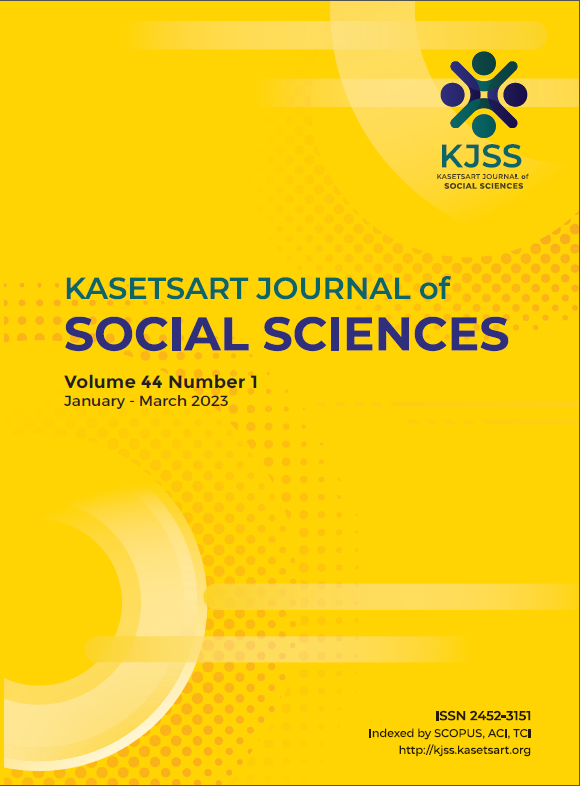Meaning extension of the Korean loan word oppa in the Thai context
Keywords:
language contact, meaning extension, metonymy mechanism, oppa, principled polysemyAbstract
The objective of this study was to examine the meaning extension of a Korean loan word oppa in the Thai context. The data of this study were 107 phrases/sentences from news articles of nine Thai newspapers: Thairath, Daily News, Khaosod, Kom Chad Luek, Post Today, Nawena, Prachachat, Matichon, and Manager Online, distributed from 2017–2021. The analytical frameworks are Tyler and Evans’ (2003) and Evans’ (2019) Principled Polysemy approach. The findings reveal that the meanings of the Korean loan word oppa in the Thai context were distinct from its central meanings in Korean. In Korean, it is used as an address term that a woman uses to call her own elder brother, a male older relative, a male friend, or a male upper classmate, which implies a sense of flirting. Normally, a woman needs to get permission from a man before addressing him, an oppa. However, in the Thai context, the word is used to refer to Korean men, Thai men, and even Thai women of any age who have typical Korean style physical appearances, and the word does not indicate kinship. The different usage of this loan word in the two cultures, consequently, can lead to misunderstandings or conflicts in cross-cultural communication. Thai people should not directly address any Korean men with an oppa because it is considered inappropriate or even rude in Korean culture. Besides, the word extended its meaning to refer to not only human beings, but also to locations and products that are related to Korea or Korean people.
Downloads
Published
How to Cite
Issue
Section
License

This work is licensed under a Creative Commons Attribution-NonCommercial-NoDerivatives 4.0 International License.
This is an open access article under the CC BY-NC-ND license http://creativecommons.org/licenses/by-nc-nd/4.0/










